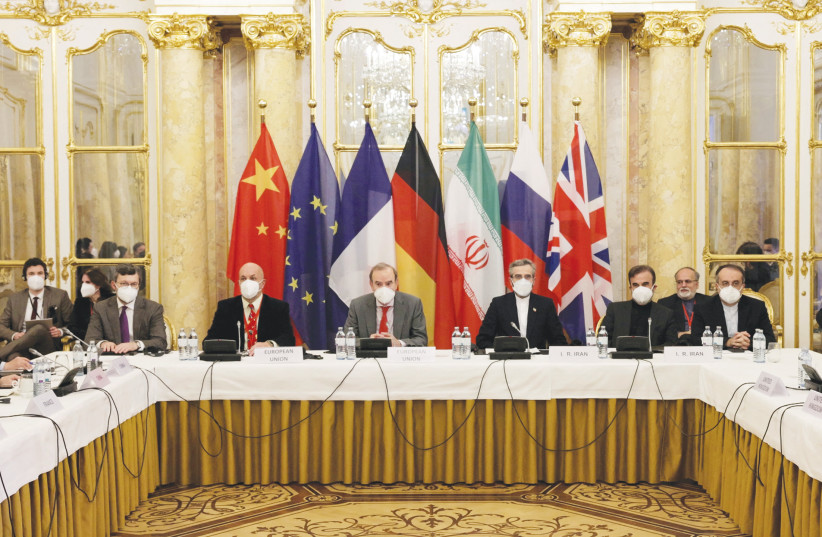WASHINGTON – The indirect negotiations with Iran “can’t go forever because of Iran’s nuclear advances,” and the talks are “in the final stretch,” a senior US State Department official said Monday.
“This is not a prediction, it’s not a threat, it’s not an artificial deadline,” he said during a press briefing. “It’s just a requirement that we’ve conveyed indirectly to Iran and to all our P5+1 partners for some time, which is that given the pace of Iran’s nuclear advances, we only have a handful of weeks left to get a deal, after which point it will, unfortunately, be no longer possible to return to the JCPOA and to recapture the nonproliferation benefits that the deal provided for us.”
This was “not an artificial deadline, not an ultimatum, but just a statement of fact that the Iranians have been aware of for some time,” the official said.
“We are reaching the final moment, after which we will no longer be in a position to come back to the JCPOA because it will no longer hold the value that we negotiated for,” he added.
“Now is the time for political decisions,” the official said. “Now’s the time for Iran to decide whether it is prepared to make those decisions necessary for a mutual return to compliance with the JCPOA.”

Negotiators have therefore returned to consultations with their leadership “to figure out whether they’re prepared to make the tough political decisions that have to be made now if we want to be in a position to secure that mutual return to full implementation of the JCPOA,” he said. “In other words, we will know sooner rather than later whether we are back in the JCPOA... or whether we’re going to have to face a different reality... of mounting tensions and crises.”
The US is aware that “it is very possible that Iran chooses not to go down that path, and we are ready to deal with that contingency,” the official said.
“We hope that’s not the decision that Iran makes, but we are prepared to deal with either one of them,” he said. “I think [the P5+1] are all united on this notion that we have little time left, that tough decisions need to be made, and now’s the time to make them.”
Israeli Ambassador to the US Michael Herzog on Monday called for international pushback against the Islamic Republic, citing the recent missile attack against the UAE by the Iran-backed Houthis as “yet another example of Iran’s destructive role in the region.”
“The international community must push back against Iran’s regional destabilizing activities, notwithstanding the nuclear negotiations,” he tweeted. “Iran’s nuclear ambitions and malign regional activities are all part of the same playbook.”
